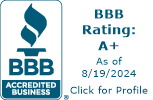Part of my responsibility as a broker for Colorado Health Insurance Brokers, is to answer questions about the health insurance underwriting process. I am often asked how insurance companies collect health insurance information and how it is used.
First of all, underwriting is defined as the process an insurance company uses to determine eligibility for coverage. The basis of this process is the insurance application(s) that are completed by candidates for coverage, and their families. Applicants over 18 year of age must sign applications, while information for applicants under the age of 18 is usually completed by a family member for dependent children.
All the applications provided by the insurance carriers with which we work include a section entitled “Authorization for Use of Protected Health Information” or something similar. Since health information is protected by privacy laws, applicants must agree to allow insurance companies to access and review this information. If an applicant does not agree to release this information, their application will be rejected. Since the application is the foundation for obtaining coverage, the information included should address all of the questions and be complete and as accurate as possible. This will expedite the process by preventing delays caused by missing or incomplete information.
Once an application has been submitted and reviewed, an insurance carrier may; issue coverage with no changes, increase a base rate for an individual based on health history, exclude certain health conditions or increase the deductible for those conditions, or decline coverage based on their underwriting guidelines. A particular carriers underwriting guidelines are not disclosed to the public and may include things like age, gender, zip code, medical history, including prescriptions.
In addition to the application, insurers can also obtain additional information in a variety of ways. Resources used by these companies may include; phone interviews with applicants, request for additional information via forms, review of the Medical Information Bureau (MIB) database, or by requesting copies of medical records from a health care provider.
While the phone interview and written requests are traditional methods used to obtain additional information; the MIB is less well known or understood. Our clients in Colorado often ask what the MIB is and how they work.
According to the MIB website, their mission is to “MIB maintains a database for Members to exchange confidential information of underwriting significance when an individual applies for life, health, disability income, long-term care or critical illness insurance. This information is maintained and safeguarded in a coded format that is accessible only to authorized personnel of a Member company to which you have applied for insurance and have authorized the company to use MIB as an information source.” This information usually includes the date and type of medical treatment received by a particular individual, as well as medications prescribed for that person.
The bottom line is that honesty is the best policy (pun intended) when applying for health insurance and other types of insurance coverage. Because there are no legal time limitations on health history, insurance companies can legally change the terms of a policy, including cancelling coverage at anytime in the future; if they determine that an applicant intentionally or unintentionally failed to disclose pertinent medical information.





